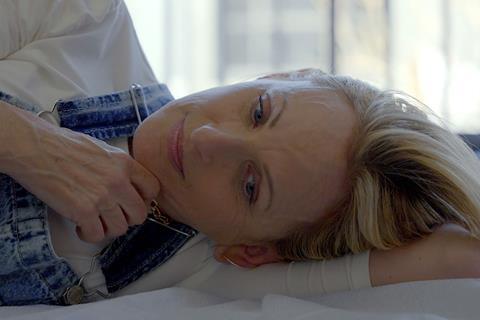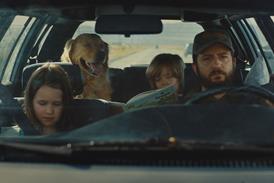Tthe life and career of deaf actor and activist Marlee Matlin

Dir: Shoshannah Stern. US. 2025. 97mins
It is almost 40 years since Marlee Matlin made Oscar history as the first deaf Best Actress winner. Marlee Matlin: Not Alone Anymore charts her subsequent life as a trailblazer obliged to assume the mantle of being a champion for the deaf community. Based around illuminating interview sessions, it touches on many aspects of Matlin’s professional and personal life, and should look forward to wide interest after its Sundance premiere.
On the surface, a solid, sweet-natured celebration of a unique artist, but it gradually provides a deeper perspective.
Deaf actor Shoshannah Stern, known for roles in television shows Weeds, Jericho and Grey’s Anatomy, turns producer/director for Not Alone and is on camera throughout. Tucked into opposite corners of a voluminous sofa, Stern and Matlin seem relaxed and very much at ease as they converse in American Sign Language. Stern begins the film as Matlin attends the 2022 Oscar ceremony, and then shifts back to 1985 with some of the audition tapes and interview footage that helped her secure a breakthrough role as Sarah in Children Of A Lesser God. Matlin’s career came full circle with the Oscar acclaim for Sian Heder’s CODA (2021) and the Best Supporting Actor Oscar win for her co-star Troy Kotsur. The fact that Matlin is no longer the only deaf acting Oscar-winner provides the documentary with its title and the arc to place her life in a wider context.
Stern gives Children of A Lesser God considerable prominence in the documentary, and rightly so. There are interviews with the film’s director Randa Haines and those on whom it had a profound influence, including deaf actor Lauren Ridloff and deaf actor and activist John Maucere. The film and Matlin’s Oscar win thrust her into the limelight, and also ignited a love affair with co-star William Hurt. She was 19 when they first met and he was 35. The relationship was marked by domestic violence and substance abuse and casts fresh light on the night of the 1987 Oscar ceremony. As the previous year’s Best Actor winner for Kiss Of The Spiderwoman, Hurt presented the Best Actress award to Matlin. She reveals that he was less than thrilled by her victory and that she was scared of what the consequences might be.
On the surface, Not Alone Anymore is a solid, sweet-natured celebration of a unique artist, but it gradually provides a deeper perspective. Matlin recognises the naivety of her younger self. The deaf community embraced her but there was outrage when she returned to present the Best Actor Oscar to Michael Douglas in 1988 and ceased signing to speak the names of the nominees and winner. In restrospect, it is clear that Hollywood was not ready for Matlin. There were few film roles in the wake of her Oscar. It was television that would eventually provide her with better opportunities in Seinfeld, The West Wing, The Practice and beyond.
Not Alone allows Matlin to reflect on a life that has been marked by landmark achievements and personal challenges from entering rehab at one point (the first deaf patient at the Betty Ford Center) to becoming a persuasive force in the adoption of closed captioning. It fills us in on the details of her family life, her close bond with loyal interpreter Jack Jason and lengthy friendship with actor Henry Winkler. Hindsight brings a reckoning with how little she was prepared for the demands that were placed upon her. The uplift in the film comes from where Matlin is now, as she turns 60 this year and has accepted the fresh challenge of directing for the first time. She is a radiant survivor of the best and worst of times.
Production companies: American Masters Pictures, Actual Films, ITVS, impact partners
International sales: Dogwoof, [email protected]
Producers: Robyn Kopp, Justine Nagan, Bonni Cohen, Shoshannah Stern
Cinematography: Jon Shenk
Editing: Sara Newens
Music: Kathryn Bostic























